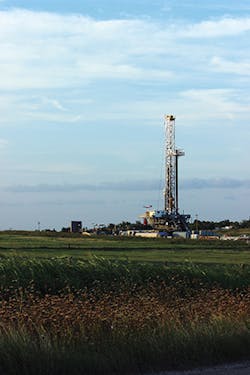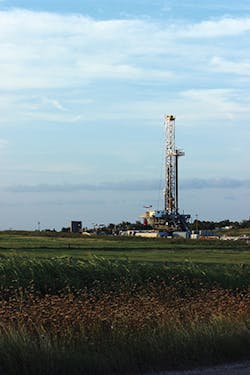A delegation from the Consulate General of Japan in Houston toured Freeport LNG Development LP in Quintana, Tex., visited a Lavaca County field in the South Texas Eagle Ford shale, and stopped in San Antonio, the City of San Antonio International Relations Office confirmed.
Japan relies increasingly upon gas-fired power plants because its nuclear reactors remain out of service following the 2011 Fukushima earthquake.
During the delegation's South Texas tour in June, former Japanese Ambassador Yasuo Saito told the San Antonio Business Journal that the Eagle Ford shale could provide a source of gas for Japan, which relies on gas from Qatar, Australia, Indonesia, and Russia.
Japan has no US free-trade agreement so Texas gas producers would need to obtain a permit from the US Department of Energy before shipping gas to Japan. Saito said the proposed Trans-Pacific Partnership, if implemented, could make it easier for US producers to sell gas for delivery to Japan.
Separately, John Corrigan of PwC in Dallas told UOGR that successful oil and gas companies emerging from the ongoing price slump will be companies capable of reacting quickly to changes in the market.
"In the waning days of the 2000s gas boom, many producers were able to sell down large gas positions to foreign oil companies to sustain drilling programs, profitability, and cash flow," said a PwC report entitled "Transacting at $50 oil: Upstream A&D plays and complexities in today's price environment," which Corrigan wrote along with PwC's Svetlana Valonis.
Foreign buyers have drastically slowed US oil and gas unconventional acquisitions given low oil and gas prices.
Corrigan sees Asian buyers as remaining interested in US gas supplies, and he expects that interest will increase with the start of US gas exports abroad. He said earlier joint ventures between US independents and national oil companies often were structured so that the NOCs carried much of the drilling costs. Many of these deals involved shale gas.
"A lot of wells drilled were not economic for both parties," Corrigan said. "People became gun shy when the gas experience tainted the market for them."
But Asian buyers continue looking for long-term gas supply, and they might turn to US shale plays to provide 10-20 years of supply "at reasonable cost," Corrigan said.


